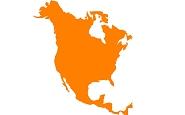Government/Policy

August 22, 2017
WSJ Questions Lighthizer Rationale on Auto Rules of Origin
Written by Sandy Williams
Rules of origin for automobiles continue to confound NAFTA negotiators. Currently, 62.5 percent of an automobile must be made in North America to qualify for duty-free status within the NAFTA region. Trade Representative Robert Lighthizer wants to push that percentage higher to reduce content coming from Europe and Asia. However, Lighthizer’s obsession with reducing the trade deficit could come at a cost to the U.S. automotive industry.
Wall Street Journal editors on Monday broached that subject, questioning: “What does the Trump trade rep have against the U.S. car industry?”
WSJ calls Lighthizer’s trade-deficit preoccupation “bizarre economics” that is “dangerous to American prosperity.”
WSJ writes, “One of NAFTA’s many benefits to American global competitiveness is that it allows U.S. manufacturers to access low-priced intermediate goods from the neighbors, add value in the U.S., and then export the final product around the world. Consumers at home and abroad find these U.S. products attractive because they are well-made and competitively priced thanks to continental supply chains. Workers and wages have benefited, too. The growth of high-paying U.S. jobs in technology, innovation, design and marketing depend on this free-trade web of supply chains.”
The issue is particularly relevant to the U.S. auto industry that benefits from intracontinental trade, producing and shipping multiple automotive products from all over Canada, the U.S. and Mexico to complete the assembly of a NAFTA vehicle.
“It is not an exaggeration to say that free-trade access to labor and capital across North America is largely responsible for the survival of the U.S. auto industry,” said WSJ.
“Mr. Lighthizer also wants to add a new mandate that NAFTA vehicles contain ‘substantial U.S. content.’ The Lighthizer logic is that this will create jobs in the U.S. Yet if higher U.S. content were good for making and selling cars around the world, the government would not have to mandate it.”
Nationalizing vehicle content was dismissed by Mexico’s Economy Minister Ildenfonso Guajardo following the first round of NAFTA talks. “National content is not used in any commercial agreement in the world because it puts too much rigidity on companies,” said Guajardo.
U.S. automakers agree. “We certainly think a U.S.-specific requirement would greatly complicate the ability of companies, particularly small- and medium-sized enterprises, to take advantage of the benefits of NAFTA,” said Matt Blunt, president of the American Automotive Policy Council that represents GM, Ford and Fiat Chrysler.
“These sorts of country specific requirements would just add to the cumbersome nature of rules of origin compliance,” said Blunt.
Lighthizer’s claim that stronger rules would help restore auto industry jobs that were lost following the launching of the NAFTA agreement in 1994 was also challenged by the editors at the Wall Street Journal.
“Most of those jobs were lost to technology and higher labor productivity,” said WSJ. “New employment opportunities depend on new export markets and enhanced competitiveness. Step one is to let go of the obsession with NAFTA trade deficits.”







